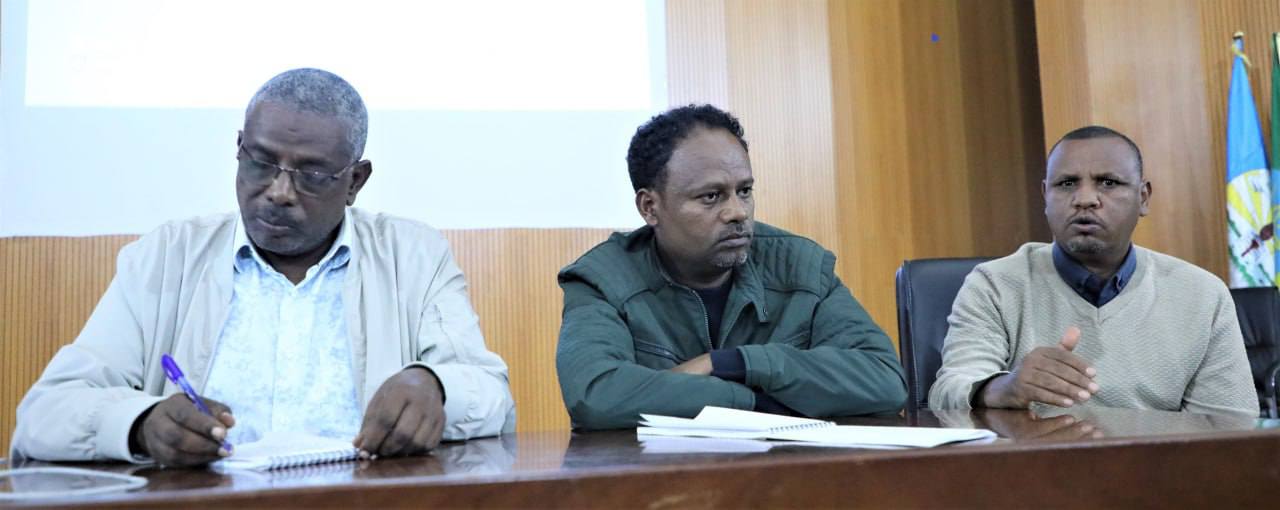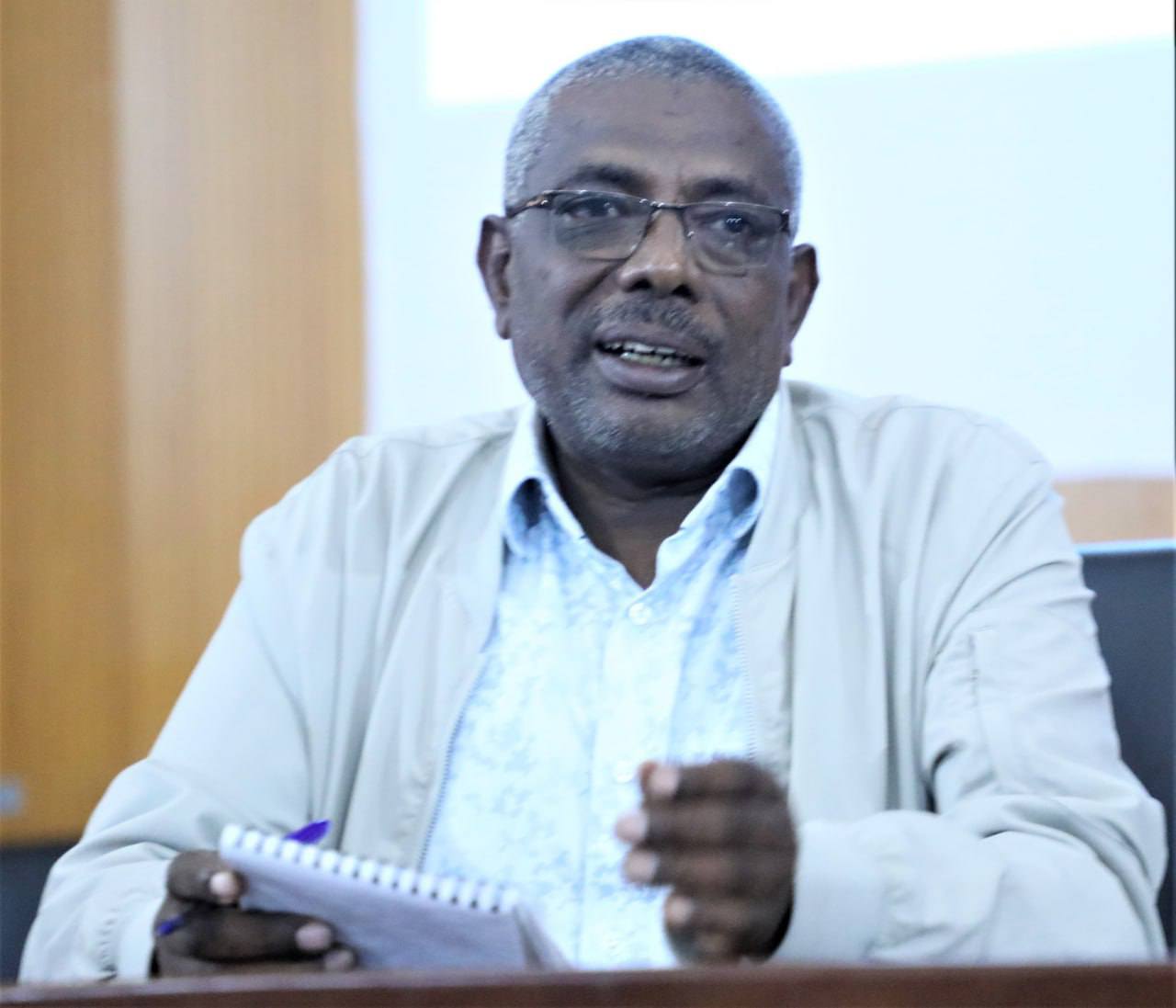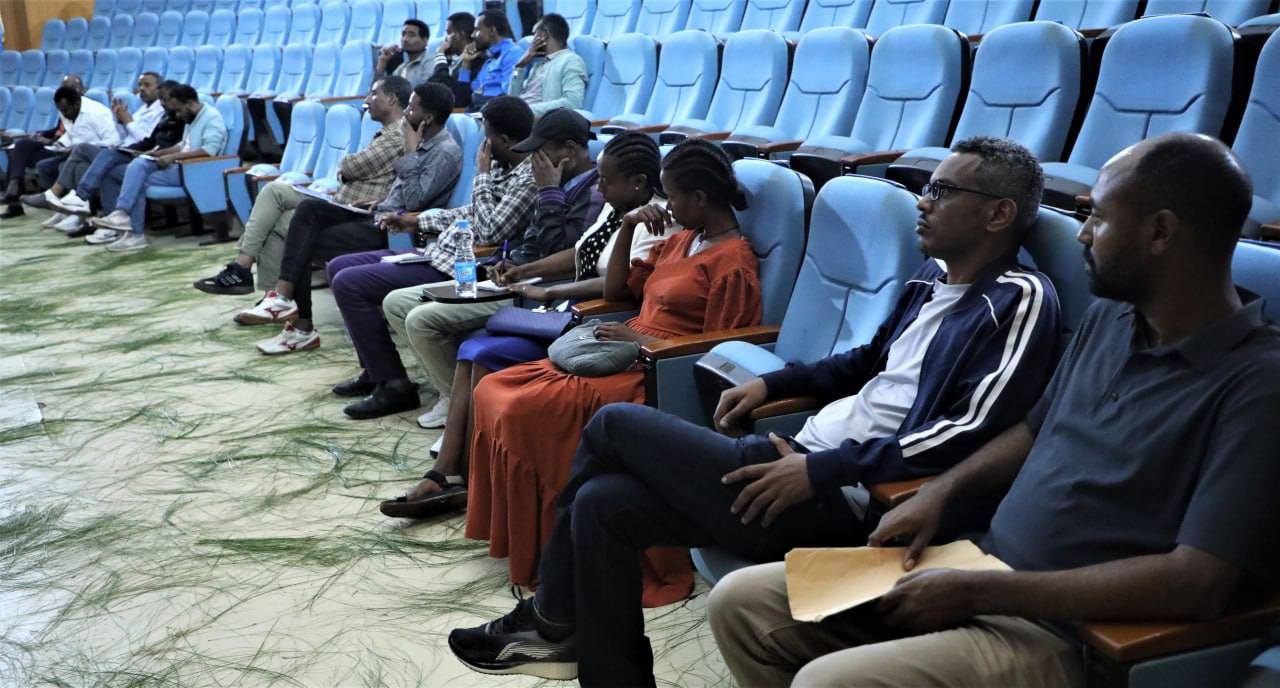
Training on Urban and Rural livelihood strategies and Challenges offered
Campus Name
24 Jul, 2025
Training on Urban and Rural livelihood strategies and Challenges offered
(July 22, 2025, Bahir Dar University)
A training convened by the BDU-IUC Socioeconomic, Sustainable Livelihood, and Environmental Management sub-project was delivered at Bahir Dar University on urban and rural livelihood strategies and related challenges to pertinent experts working in different government offices.
In the opening speech of the training, Professor Amare Sewnet, leader of sub-project 6 of the BDU-IUC project, explained the activities carried out under the BDU-IUC sub-project. He highlighted the two phases of the project: the first phase ran from 2017 to 2023, and the second phase from 2022 to 2027. He detailed the major accomplishments, including:
· Supervising and graduating 17 PhD students during the first phase. Further the research outputs were presented in the presence of stakeholders
· Sponsoring 29 Master's students
· Providing various training sessions to stakeholders
· Disseminating research findings by scholars to stakeholders
· Expanding community service
· Publishing over 42 different research findings
The training focused on two key themes:
1. Land Management in Expanding Urban Areas:
This theme in which The Amhara Region Land Bureau and Bahir Dar City’s sub-city and kebele-level land management professionals participated, focused on how land around expanding cities is appropriated, how land compensation is handled, what mechanisms are in place for the sustainable livelihoods of displaced farmers, and how communal lands and forests are integrated into urban planning. It also examined whether the ecological value of land is considered.
2. Agricultural Extension Concepts and Systems:
in this regard, agricultural extension and crop development experts from North Mecha and Fogera woredas participated in the discussion that covered the philosophy and essence of agricultural extension, types and systems of extension, community participation, and coordination with partners.
Dr. Wubante Fetene, head of the Real Property Management Department at Bahir Dar University's Land Administration Institute and a PhD graduate of the BDU-IUC project, explained that the training aimed to clarify how land is acquired in the process of urban expansion—whether it follows legal procedures, how compensation is calculated and paid, and how redevelopment is managed afterward. He mentioned his PhD research focused on this subject and emphasized that such studies and their findings can provide real support to ensure proper urban development by addressing real challenges.
He also noted that the training helps participants understand and respect land laws, guidelines, directives, and regulations and supports lawful and informed practice.
Dr. Yemane Asmelash, an agricultural extension lecturer at the College of Agriculture and Environmental Sciences, Bahir Dar University, stated that the training concentrated on the role of agricultural extension in technology transfer. It aimed to build awareness and capacity among agricultural extension professionals.
Among the participants, Ms. Emabet Desie, a crop development expert from Wereta Zuria kebele in Fogera woreda, shared that the training enhanced not only her theoretical knowledge but also her practical understanding of how to work effectively with the land.
Mr. Workiye Mengistu, Head of the Agricultural Extension Communication Team at Fogera Woreda Agriculture Office, mentioned that the training provided them with a deeper understanding of the nature and processes of agricultural extension.
Mr. Aschalew Amanu, a land management expert from the Amhara Regional Land Bureau, said that the training was well-designed based on research findings and had given him valuable insights.
Mr. Getaneh Minale, a kebele-level land management professional from Bahir Dar City Land Administration Office, also noted that the training helped them better understand how to address land-related challenges appropriately.
In his concluding speech, Professor Amare Sewnet stated that the training broadly addressed issues regarding urban expansion, land use, and whether the currently applied agricultural extension methods are scientifically sound and inclusive. He confirmed that the discussions and research-based findings raised during the training will contribute significantly to addressing these challenges.
Experts from the BDU-IUC Socioeconomic, Sustainable Livelihood, and Environmental Management sub-project, the Amhara Region Land Bureau, Bahir Dar City Administration Land Management Office, and Fogera and North Mecha woredas participated in the training.



